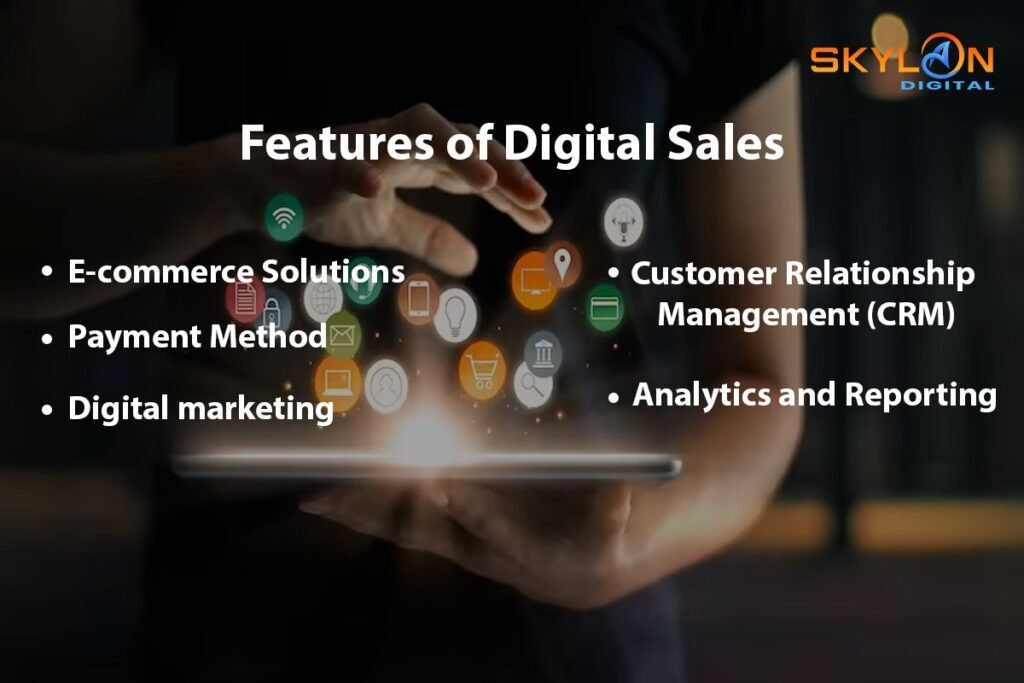
Digital sales are generally the selling of a company’s products and services through an online platform, e-commerce sites, and website. It also includes digital sales via email or online chat.
Table of Contents
Types of Digital Sales
Digital sales is divided into different sections depending on the section it is available. The following is a list of the types of digital sales.
- Website: an online store or a third-party website that sells products or provides services where the person or potential customer explores through a specific or individual website.
- Social media: this digital sales section refers to selling of products or services through social media platforms by showing ads or accounts such as Instagram or Facebook.
- Email: You have ever received sponsored ads or company mail where the company shares the details of the product as per the preferences and latest updates.
Benefits of Digital Sales
- Digital sales generate inbound leads, have a wider reach, and focus on generating revenue.
- Digital sales are considered the fastest method for building trust for the company and increasing visibility for the site or the online platform of the business.
- Digital sales are cost-effective because the company doesn’t need a separate physical outlet to sell the products. Companies can directly sell their products through an online portal and handle the deliveries from their warehouse.
- Digital sales have 24/7 availability as it is not time-bound like other physical outlets. Thus, the customers can explore or shop at any time.
Features of Digital Sales
The following are the key elements on which digital sales can be impacted:
- E-commerce Solutions: The e-commerce solutions are the portals or platforms that assist the business to set up and manage their online store.
- Payment method: The key to managing and organizing a company is generating revenue. To ensure the customers get a secured payment, companies use different payment gateways. The business should make sure and take the accountability to maintain privacy and protect their payment method for processing safe and efficient transactions.
- Digital marketing: techniques like SEO, search engine marketing (SEM), PPC, email marketing, and social media marketing drive traffic to e-commerce sites or online shopping platforms and help convert visitors or the audiences into customers.
- Customer Relationship Management (CRM): the CRM are the tools or software that assist the company to manage the customer needs with the help of customer interactions, sales tracking, and analyzing data to enhance the customer relationships with the company and increase sales.
- Analytics and Reporting: This feature of digital sales includes monitoring of website traffic, sales conversion rate, return on investment, and customer behavior, which helps businesses to concentrate on their digital sales strategies.

Methods for Digital Commerce Solutions
- Select the right platform and hosting provider that fits in the budget and provide the key benefits, like high-speed surfing, backup and recovery options, and more.
- Prefer high-quality product images and easy or user-friendly descriptions.
- Focuses on mobile-friendly content.
- Provide diverse methods of payment options.
- Focus on providing a reliable and supportive customer service experience.
- Analyze the sales data and overall performance to add updates as per the trends and requirements.
Challenges of Digital Sales
Selling products online can be a little challenging due to various factors. Here are some of the most common challenges of digital sales.
- Payment security is the first thing when it comes to the challenges of digital solutions, as it is important to protect and provide a secure payment or transaction platform.
Digital sales have a huge competition due to the high use of online marketing and competitor options. To overcome this, the company should have good value and focus on assisting with the best services and product quality to gain trust and reliability






